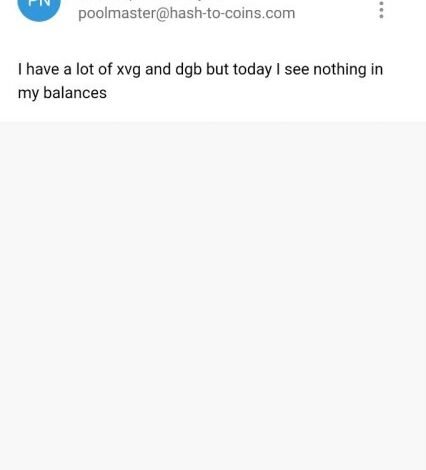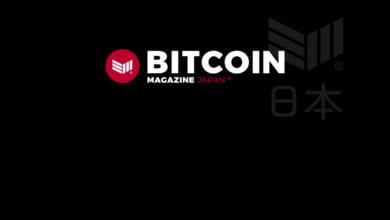An Untold Story of Bitcoin in Thailand

In the rapidly expanding global Bitcoin community, Western biases often dominate the narrative, overlooking diverse stories from around the world. One such story belongs to Didier Somnuke, a small business owner in the heart of Bangkok, a city known for welcoming 22.8 million international tourists in 2023, surpassing cities like Paris, London, and New York City. Although Thailand has experienced a massive spike in household debt, reaching 16.37 trillion baht (US$463 billion) or 90.8% of the national GDP, up from less than 14 trillion baht in 2019.
Didier Somnuke, born in Yala province, where geopolitical conflict is a harsh reality. Southern Thailand is one of the poorest parts of Thailand with a poverty rate of 34% compared to the national average of 6%, according to the World Bank, has been plagued by instability. Since 2004, this turmoil has claimed over 7,000 lives and injured 13,500 people.
As a Thai saying goes, “ทวงสิทธิ์ที่จะมีชีวิตที่ดีกลับคืนมา” (Reclaim the right to a better life), In 2012, Didier left his conflict-ridden hometown for Bangkok, where pursuing higher education was a beacon of hope for a better life. At that time, Bitcoin and financial concepts were distant ideas in Didier’s universe. Navigating the vibrant streets of Bangkok, Didier completed his master’s degree and joined the workforce, taking up a typical 9-to-5 job. For a domestic migrant, this was a significant achievement. Reflecting on his journey, he recalled his teacher’s words, “When you are old, you have time and money, but you will lack the energy to start a business. If you want to do it, just do it.” With this advice in mind, Didier resigned from his monotonous corporate job after a year and opened a new chapter in his life.
Didier borrowed 50,000 THB (approximately 1,500 USD) from his brother to begin a street burger shop. He chose to start a burger business because he believed it was easy to launch with a small investment. Driven by his ambition and inspired by the bustling energy of Bangkok, a city that never sleeps. He spent about a year developing the recipe and began the business in 2015. In the first three to four years, he managed everything on his own as a solo entrepreneur, and his income was lower than the wage he earned in his corporate job. He often wondered if he had made a mistake by quitting his job to start a business that generated less income. However, after five years, everything started to improve. Sales at the shop began to increase, and Didier started hiring employees.
He admitted, “I entered the crypto market with greed; all I wanted was to get rich quickly.” In 2017, he and his friends pooled their resources to buy three ASIC miners from Bitmain to try mining Bitcoin and altcoins like Litecoin and Dogecoin. They saw a return on their investment within six months. Didier bought his first Bitcoin in early 2017 to purchase those ASIC miners but didn’t know how to transfer his Bitcoin, so he ended up using a bank transfer instead.
Reflecting on his early experiences, he recalled, “My first Bitcoin were slowly converted to shitcoins during the bull market. I was so lucky. I got a 100% profit almost immediately whenever I bought something.” Despite having zero knowledge about cryptocurrency, he gained confidence and became a super shitcoiner, paying very little attention to Bitcoin.
In mid-2017, he learned about leverage and trading. His profits skyrocketed due to leverage. Although luck was not always on his side forever, in early 2018, the market crashed, and he lost over 1 million Thai baht (almost 30,000 USD), while his initial capital was just about 100,000 Thai baht (about 3,000 USD). On top of that, he also lost his shitcoins from the mining pool. He had kept all of his shitcoins in the mining pool’s custody, and one day, when he checked his account, every shitcoin he owned, worth 10,000 USD were gone. The notice on the mining website, “Hash-to-Coin,” stated that if coins were kept with them for more than three months, they would be considered a donation.

He disheartenedly said, “I lost everything.” But unlike most people, “I didn’t blame Bitcoin. I still see it as the future. I blame myself. I didn’t know anything and I did over leverage.” He emphasized that despite his heavy financial losses, his girlfriend did not leave him. “My girlfriend was my customer. She regularly came to buy burgers. I met her while I was struggling financially during my early days as an entrepreneur. She supported me and said we could make the money back.”
Determined to turn his circumstances around, he discovered Mr. Piriya on YouTube and started following his live streams about the real Bitcoin education. This marked the moment he began to truly understand what Bitcoin and cryptocurrency are. Enlightened by this unique knowledge, he came to see Bitcoin as a saving technology rather than just a trading tool. Over three years, Didier recovered from his losses and emerged stronger. He got to be friend with Mr. Piriya, and together they founded a company called Right Shift to develop Bitcoin content in Thai language through multiple social media channels, including on Nostr with with one of the popular hashtag #siamstr. As a team, they translated “The Bitcoin Standard” and “The Fiat Standard” into Thai, both of which became best-selling books in Thailand. They organized the first-ever Bitcoin Thailand Conference in 2023 and are now preparing for the next one in September 2024.

Didier now accepts Bitcoin as a payment method in his main burger shop, one of four different franchises. He uses Wallet of Satoshi to process these payments. Within a year of implementing this initiative, he has received over 3 million sats in payments, though he initially expected to see more transactions in Bitcoin. In his marketplace, some neighboring small business owners occasionally ask him about Bitcoin as they notice the large Bitcoin poster in his shop. Although they often lose interest once he explains, according to his several unsuccessful experience. Instead now, he focuses his energy online, where he can make more impact to people who are willing to embrace innovation.

In 2022, approximately 8.4 million people in Thailand, accounting for 12% of the country’s population, used cryptocurrency. Estimates suggest that by 2028, this number will rise to about 17.67 million, representing 25% of the population. During our conversation, Didier claimed that there are about 50,000 Bitcoin users in Thailand and speculated that the Thai government might intervene in Bitcoin adoption, potentially mandating the use of KYC wallets because they dislike money systems they can’t control. In the worst-case scenario, Didier remains resolute: he will continue advocating for Bitcoin with his friends. “It is not an option,” he asserted, “it is the only way to survive.”
This is a guest post by Win Ko Ko Aung. Opinions expressed are entirely their own and do not necessarily reflect those of BTC Inc or Bitcoin Magazine.





